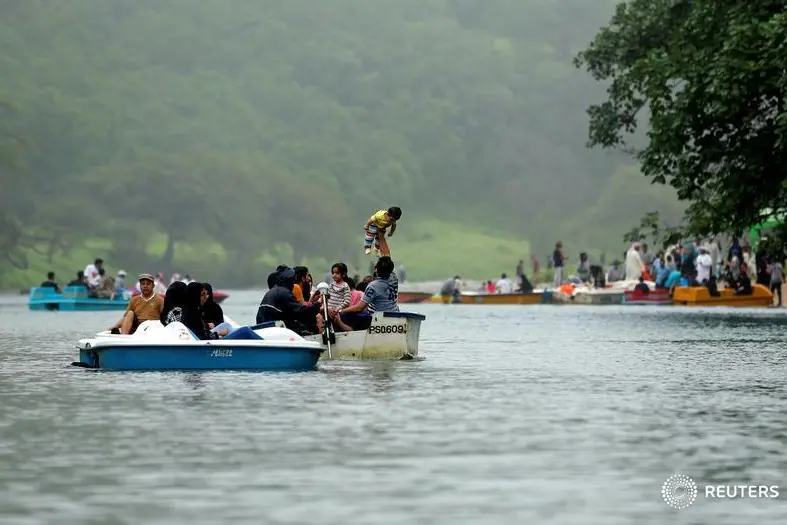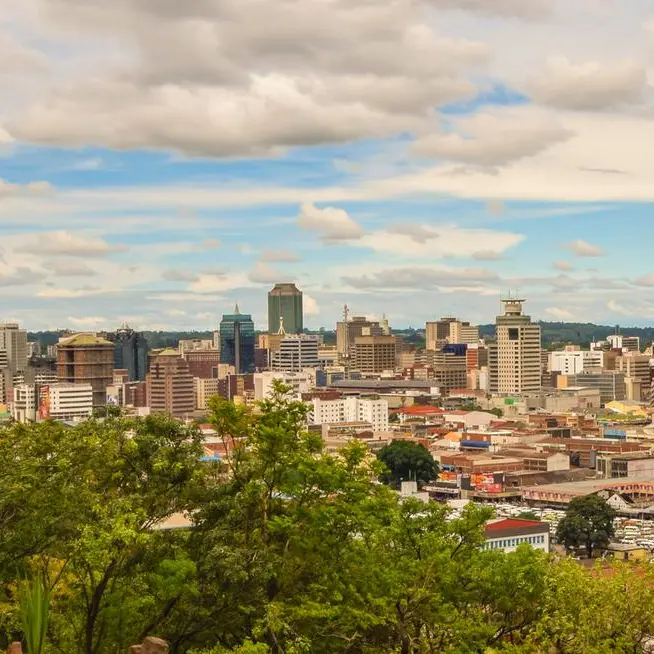PHOTO
SALALAH: Dhofar, located in the southernmost part of Oman, boasts exceptional diversity and distinct charm. The governorate stands out due to its stunning scenery, rich cultural heritage, and untapped economic potential. It has the trappings of a premier travel destination that can make a significant contribution to the national economy.
Salalah, Dhofar's vibrant administrative capital, hosts one of the most crucial ports on the Arabian Peninsula. Positioned advantageously on the Indian Ocean, Port of Salalah is vital for international marine trade. It serves as a gateway between the East and the West, fostering local economic growth by creating jobs and boosting related businesses. Ongoing efforts to enhance logistics and infrastructure further solidify Salalah Port's role as a commercial hub.
Dhofar is renowned for its Khareef, or monsoon season, which typically lasts from June to September. During this period, the region undergoes a dramatic transformation, attracting tourists worldwide, especially from Gulf Cooperation Council (GCC) countries, as the previously arid landscape becomes lush and green. The Khareef season significantly boosts the local economy, increasing business for hotels, restaurants, and other service industries. This seasonal influx not only highlights Dhofar's natural allure but also its potential as a top travel destination.
The agriculture sector, known for producing bananas and frankincense, is another crucial pillar of Dhofar's economy. Frankincense, harvested from the governorate’s trees, is economically and historically significant, used in everything from perfumes to pharmaceuticals. Additionally, banana farming supports many locals' livelihoods and enhances food security, contributing to the area's agricultural diversity.
Historically, Dhofar's economy has relied heavily on the frankincense trade, known as the "gold of the desert." Dhofar played a pivotal role in ancient trade routes connecting India and Africa with the Arabian Peninsula. Today, the industry remains vibrant, with contemporary applications in pharmaceuticals, cosmetics, and aromatherapy. This enduring trade preserves a significant part of Dhofar's history and provides economic opportunities for the community.
Dhofar's rich cultural heritage, embodied in festivals, traditional dance, and music, is vital in preserving the region's unique character. Events like the annual Salalah Tourism Festival attract tourists from around the globe, offering an immersive experience in Dhofar's distinctive customs. These cultural celebrations provide authentic experiences for visitors and foster a sense of continuity and pride among locals.
Aligned with global environmental trends, Dhofar plans to ramp up investments in its promising renewables sector. Renewable energy projects, particularly those centring on green hydrogen production, offer significant economic benefits, including job creation, lower energy costs, growth of hard-to-abate industrial investments, and environmental preservation.
The fishing industry, supported by Dhofar's diverse marine life, plays a crucial role in the local economy. This sector provides jobs and enhances food security for a significant portion of the population. Embracing sustainable fishing practices ensures the industry's long-term viability. With new processing facilities and improved market access, Dhofar's fisheries have greater profit potential.
Salalah is rapidly urbanizing, driven by various infrastructure and real estate developments. These projects, including luxury hotels, residential buildings, and shopping centers, cater to the growing population and increasing number of visitors. Urban renewal enhances the quality of life for residents and presents Salalah as a modern, dynamic city with future growth potential.
Skill development and education are vital for Dhofar's economic success. Significant investments in educational infrastructure, such as new universities, schools, and vocational training centers, aim to equip the local workforce with the skills needed for diverse industries. An educated and skilled workforce positions Dhofar to meet the demands of an evolving economy.
Recent advancements in healthcare services have greatly improved the quality of life in Dhofar. Modern hospitals and clinics, equipped with state-of-the-art facilities and highly trained staff, provide comprehensive medical care. These improvements ensure the well-being of the local population and attract health tourists seeking high-quality medical services.
Women are increasingly contributing to Dhofar's economy in various sectors, including healthcare, education, and entrepreneurship. Initiatives promoting female entrepreneurship and employment have increased women's workforce representation. This empowerment not only stimulates economic growth but also fosters gender equality and social development.
Dhofar's diverse habitats, ranging from coastal areas to mountain ranges, host a wide variety of flora and fauna. Environmental conservation efforts are crucial in preserving these natural areas. Initiatives such as protected areas, wildlife conservation programs, and sustainable tourism practices aim to balance environmental preservation with economic development, safeguarding Dhofar's natural heritage for future generations.
Infrastructure development, including public utilities, roads, and airports, is essential for Dhofar's economic growth. Oman's Vision 2040 outlines a long-term development strategy prioritizing social welfare, sustainability, and economic diversification. Dhofar plays a key role in this vision, with its major projects and initiatives aligning with national goals. Dhofar's significant contributions to Vision 2040 drive Oman's overall success in education, healthcare, tourism, and renewable energy.
Beyond the well-known Khareef season, Dhofar offers numerous lesser-known tourist attractions providing unforgettable experiences. Examples include the vast Empty Quarter desert, pristine Mirbat beaches, and historic Samhuram ruins. Promoting these attractions can diversify tourism options and strengthen the local economy by attracting a broader range of visitors.
2022 © All right reserved for Oman Establishment for Press, Publication and Advertising (OEPPA) Provided by SyndiGate Media Inc. (Syndigate.info).





















